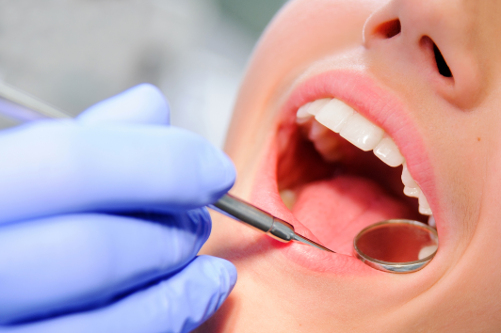Saliva is an essential part of your oral and digestive health that protects you from cavities, gum disease, and digestive problems. Saliva is a colorless liquid produced by several glands in your mouth. It contains important enzymes that aid in digestion by breaking down food particles. Saliva also has minerals and other nutrients that are necessary for your teeth and gums.
When your mouth is dry, you are more prone to dental issues, such as:
- Mouth sores
- Tooth decay
- Gum disease
- Yeast infection in your mouth
We’ve collected eight amazing facts about saliva that may surprise you:
1. Saliva lubricates your mouth
Saliva is a liquid that creates a barrier in your mouth between the oral mucosa and anything that enters your mouth. It lubricates mucosa and thus helps prevent your tongue, gums, and cheeks from irritation. This function of saliva also protects from:
- Carcinogens that enter your mouth with cigarette’s smoke and air you breathe in
- Enzymes in plaque that harm your tooth enamel and provoke enamel erosion and cavities
- Dry mouth syndrome
Saliva is your protection against severe problems like tooth loss and gum recession. Instead of replacing missing teeth and restoring your gums, maintain a healthy daily production of saliva in your mouth. Here are some tips on how to prevent dry mouth:
- Chew sugar-free gum
- Try a mouthwash for dry mouth
- Limit your coffee intake
- Avoid smoking
- Drink water regularly
- Breathe through your nose
- Avoid taking over-the-counter antihistamines
- Add some moisture to the air at night
2. Saliva can help identify systemic health problems
DNA in your saliva can predict the risk of the presence of the following conditions:
- Allergies
- Chronic stress
- Premature aging
- Sleep problems
- Fertility problems
- Acne
- Oral cancer
- Viruses, including HIV
- Neck and head cancer
- Calcium absorption issues
- Cardiovascular problems (heart palpitations and high cholesterol)
- Male-pattern baldness
3. Saliva cleans away food debris
Saliva helps protect your teeth against food debris that can cause tooth decay and gum inflammation. When you have a normal amount of saliva in your mouth, food particles are less likely to accumulate on your teeth that reduces your risk of dental problems.
4. Saliva protects your teeth from harmful acids
Compounds in your saliva that help protect your teeth against acids include:
- Urea
- Phosphate
- Bicarbonate
- Amphoteric proteins and enzymes
- Histidine-rich peptides
This function of saliva is almost nonexistent when your production of saliva is insufficient. This is called “unstimulated saliva”.
5. Saliva helps maintain healthy oral microbiome
Your saliva plays a big role in balancing good-to-bad bacteria in your mouth. Special proteins and mucins found in your saliva destroy, gather, and/or attach to certain kinds of mouth bacteria that harm your teeth and gums. These functions help keep a healthy oral microbiome and prevent pathogens from ruining your dental health.
6. Saliva makes you feel tastes
Molecules in food that taste of distinct flavors must first be solubilized, or made more soluble (dissolvable) before you can taste your food. Your saliva interacts with your taste buds to unmask these tastes provided by foods you eat.
7. Saliva promotes tooth strength and remineralization
Saliva is aimed at maintaining the strength of your teeth by supporting remineralization. Your teeth are remineralized and demineralized every day. Good salivary flow and normal pH (6-7) allows saliva to provide your teeth with necessary minerals while protecting from harmful acids that wear down your enamel.
8. Saliva “launches” the digestive process
Actions like chewing and swallowing start your digestive process, but they are useless without saliva. As you chew, the saliva in your mouth binds food particles together into a substance that easily enters your esophagus. The enzyme amylase in saliva breaks down food particles into simpler compounds, which is the first step to digesting food.
The compounds in saliva also protect your throat and esophagus from potentially harmful substances and various irritants that are found in foods.






Comments